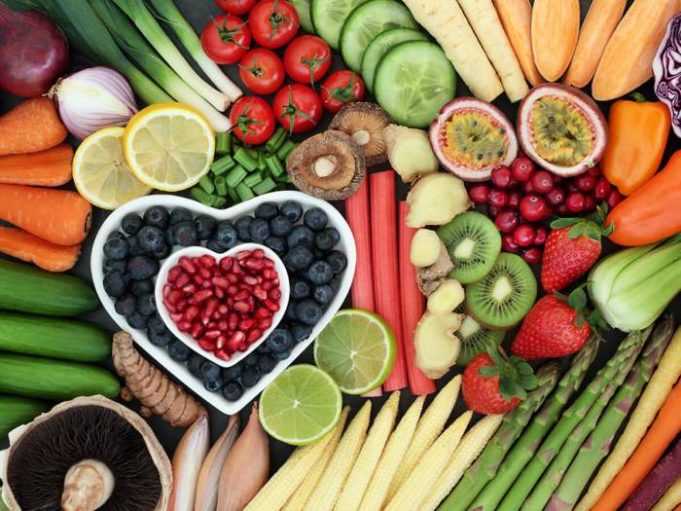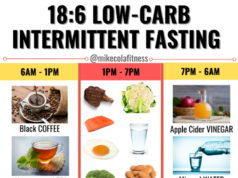Is vegan diet good for you – Is a vegan diet good for you? It’s a question that’s gaining more and more attention as people become increasingly aware of the environmental, ethical, and health implications of their dietary choices. A vegan diet, which excludes all animal products, has become a popular lifestyle choice for those seeking a healthier and more sustainable way of life. This article delves into the various aspects of a vegan diet, exploring its potential benefits and challenges, as well as its impact on the environment and personal health.
From the abundance of vitamins and minerals found in plant-based foods to the environmental impact of reducing meat consumption, this article offers a comprehensive overview of the vegan lifestyle. We’ll examine the nutritional aspects of a vegan diet, addressing potential deficiencies and providing practical tips for ensuring adequate nutrient intake. We’ll also explore the environmental benefits of choosing a plant-based diet and discuss the ethical considerations associated with animal welfare.
Potential Challenges of a Vegan Diet
While a vegan diet offers numerous health benefits, it’s essential to be aware of potential challenges that may arise due to dietary restrictions. A well-planned vegan diet can provide all the necessary nutrients, but careful consideration and adjustments are required to ensure adequate intake of certain essential nutrients.
Nutrient Deficiencies
A vegan diet, while rich in fruits, vegetables, and whole grains, may lack certain nutrients crucial for optimal health. These include vitamin B12, iron, calcium, and omega-3 fatty acids.
Importance of Planning and Supplementation
Careful planning is crucial to ensure a balanced vegan diet that meets all nutritional needs. This involves consuming a wide variety of plant-based foods, including legumes, nuts, seeds, and fortified products. In some cases, supplementation may be necessary to bridge nutritional gaps.
Vitamin B12
Vitamin B12 is primarily found in animal products. Vegans need to obtain it from fortified foods or supplements. Deficiency can lead to fatigue, anemia, and neurological problems.
Iron
Iron is essential for red blood cell production. Plant-based iron, known as non-heme iron, is less readily absorbed than heme iron found in animal products. To enhance iron absorption, consume iron-rich foods with vitamin C-rich foods, such as citrus fruits and leafy greens.
Calcium
Calcium is vital for strong bones and teeth. While plant-based sources of calcium, such as leafy greens, fortified plant milks, and tofu, are available, vegans may need to pay extra attention to their calcium intake.
Sample Meal Plan
A well-planned vegan meal plan can address potential nutrient deficiencies. Here’s a sample meal plan incorporating diverse food groups:
* Breakfast: Oatmeal with fortified plant milk, berries, and chia seeds.
* Lunch: Lentil soup with whole-grain bread and a side salad.
* Dinner: Tofu stir-fry with brown rice and broccoli.
* Snacks: Almonds, fruit, or a vegan protein shake.
Environmental Impact of a Vegan Diet: Is Vegan Diet Good For You
The environmental impact of our dietary choices is a growing concern, with animal agriculture being a major contributor to various environmental issues. Adopting a vegan diet can significantly reduce your environmental footprint by minimizing the consumption of animal products.
Carbon Footprint of Animal Agriculture
The carbon footprint of animal agriculture is significantly higher than that of plant-based agriculture. This is due to the energy-intensive processes involved in raising livestock, including feed production, transportation, and processing. Animal agriculture is responsible for a significant portion of greenhouse gas emissions, particularly methane, which is a potent greenhouse gas.
According to the United Nations’ Food and Agriculture Organization (FAO), livestock production is responsible for 14.5% of global greenhouse gas emissions.
Land Use and Water Consumption
Animal agriculture requires vast amounts of land for grazing and feed production. The clearing of forests for livestock grazing and feed cultivation contributes to deforestation and habitat loss. Furthermore, animal agriculture is a major consumer of water resources, as it requires large amounts of water for livestock drinking, feed irrigation, and processing.
- The production of one pound of beef requires approximately 1,800 gallons of water, while the production of one pound of wheat requires only 25 gallons of water.
- Animal agriculture is estimated to be responsible for 30% of global freshwater use.
Ethical Considerations
The ethical implications of animal agriculture are a crucial aspect of the environmental impact of a vegan diet. The intensive farming practices employed in modern animal agriculture often involve the confinement of animals in small, unsanitary spaces, leading to stress, disease, and suffering.
- Factory farming practices often involve the use of antibiotics and hormones to accelerate growth and prevent disease.
- The inhumane treatment of animals in factory farms raises ethical concerns about animal welfare.
Practical Aspects of a Vegan Diet

Embracing a vegan lifestyle is a significant change, but it doesn’t have to be overwhelming. Transitioning gradually, exploring plant-based cooking, and understanding the availability of vegan products can make the journey enjoyable and sustainable.
Transitioning to a Vegan Lifestyle
Transitioning to a vegan diet can be a gradual process. Start by incorporating more plant-based meals into your diet and gradually reducing your consumption of animal products. Explore different vegan recipes and experiment with new ingredients.
Plant-Based Cooking
The world of plant-based cooking is vast and exciting, offering a wide array of flavors and textures. Numerous resources can help you navigate this culinary landscape:
- Cookbooks and Websites: Many cookbooks and websites dedicated to vegan cuisine provide recipes for all skill levels, from simple weeknight dinners to elaborate gourmet dishes. Popular options include “The Vegan Cookbook” by Isa Chandra Moskowitz and “Veganomicon” by Isa Chandra Moskowitz and Terry Hope Romero. Websites like “The Vegan Society” and “Veganuary” offer a wealth of recipes and resources.
- Vegan Food Blogs and Social Media: Numerous vegan food bloggers and social media accounts share their culinary creations, tips, and recipes. These platforms offer a vibrant community and inspiration for plant-based cooking.
Vegan-Friendly Restaurants and Food Options, Is vegan diet good for you
The popularity of veganism has led to a significant increase in vegan-friendly restaurants and food options. Many restaurants now offer dedicated vegan menus, while others have expanded their offerings to include plant-based alternatives.
- Vegan Restaurants: Dedicated vegan restaurants offer a wide range of dishes, from traditional comfort food to innovative cuisine. Websites like “HappyCow” and “Vegan Restaurant Guide” provide listings of vegan restaurants worldwide.
- Vegan Options in Mainstream Restaurants: Many mainstream restaurants now offer vegan options, including salads, soups, pasta dishes, and burgers. Check the menu or ask your server for vegan-friendly choices.
Availability of Vegan Products
The availability of vegan products has exploded in recent years, making it easier than ever to find plant-based alternatives to traditional animal products.
- Supermarkets: Most supermarkets now carry a wide range of vegan products, including plant-based milk, cheese, yogurt, meat alternatives, and ready-made meals.
- Specialty Stores: Vegan specialty stores offer a more extensive selection of vegan products, including gourmet cheeses, vegan meats, and vegan baked goods.
- Online Retailers: Online retailers offer a convenient way to purchase vegan products, with a wide range of options and delivery services.
Vegan Diet and Health Conditions
A vegan diet, while offering numerous health benefits, can also play a significant role in managing and improving specific health conditions. This section explores how a vegan diet can be beneficial for individuals with certain health conditions and the potential challenges they might encounter.
Vegan Diet and Diabetes
A vegan diet can be beneficial for individuals with diabetes by helping them manage blood sugar levels. Plant-based foods are generally low in saturated fat and cholesterol, which can contribute to insulin resistance. Moreover, a vegan diet is rich in fiber, which helps regulate blood sugar levels and improves insulin sensitivity. A study published in the journal “Diabetes Care” found that vegans had a lower risk of developing type 2 diabetes compared to non-vegans.
Vegan Diet and Heart Disease
A vegan diet can significantly reduce the risk of developing heart disease. By eliminating animal products, vegans consume less saturated fat and cholesterol, both of which are known to contribute to heart disease. Additionally, a vegan diet is rich in fruits, vegetables, and whole grains, which are excellent sources of fiber, antioxidants, and other nutrients that promote heart health. A study published in the “Journal of the American College of Cardiology” found that vegans had a 25% lower risk of heart disease compared to non-vegans.
Vegan Diet and Obesity
A vegan diet can be an effective tool for weight management. Plant-based foods are generally lower in calories and fat than animal products, making it easier to maintain a healthy weight. Additionally, the high fiber content of a vegan diet helps promote satiety, reducing the likelihood of overeating. Studies have shown that vegans tend to have a lower body mass index (BMI) than non-vegans.
Potential Challenges of a Vegan Diet for Individuals with Specific Health Conditions
While a vegan diet can offer numerous health benefits, individuals with specific health conditions may encounter certain challenges. For instance, vegans may need to be more vigilant about ensuring adequate intake of certain nutrients, such as vitamin B12, iron, and calcium. It is crucial to consult with a registered dietitian or healthcare professional to develop a personalized vegan diet plan that meets individual nutritional needs.
Suitability of a Vegan Diet for Different Health Conditions
| Health Condition | Suitability of a Vegan Diet | Potential Challenges |
|---|---|---|
| Diabetes | Generally suitable | Ensuring adequate intake of protein and complex carbohydrates |
| Heart Disease | Highly suitable | Monitoring potassium and sodium intake |
| Obesity | Generally suitable | Ensuring adequate intake of calories and essential nutrients |
| Kidney Disease | May require adjustments | Managing potassium and phosphorus intake |
| Pregnancy and Lactation | May require careful planning | Ensuring adequate intake of vitamin B12, iron, calcium, and omega-3 fatty acids |
Conclusive Thoughts
Adopting a vegan diet can be a rewarding journey towards a healthier, more sustainable, and compassionate lifestyle. While it’s essential to address potential nutrient deficiencies and make informed choices, a well-planned vegan diet offers numerous health benefits and contributes to a more sustainable future. Whether you’re considering a full vegan lifestyle or simply incorporating more plant-based foods into your diet, understanding the various aspects of veganism can empower you to make informed choices that align with your values and goals.
FAQ Compilation
Is a vegan diet suitable for everyone?
While a vegan diet can be healthy for most individuals, it’s essential to consult with a healthcare professional, especially if you have specific health conditions or are pregnant or breastfeeding. They can help you create a personalized plan to meet your individual needs.
Are vegan diets expensive?
A vegan diet can be as affordable or expensive as any other diet, depending on your food choices. There are plenty of affordable plant-based foods, and with careful planning, a vegan diet can be budget-friendly.
Can I get enough protein on a vegan diet?
Absolutely! Many plant-based foods are excellent sources of protein, such as beans, lentils, tofu, tempeh, nuts, and seeds. A well-planned vegan diet provides ample protein for all your needs.
A vegan diet can be a healthy and sustainable choice, but it’s important to ensure you’re getting all the necessary nutrients. Some people may be tempted to take shortcuts with diet pills, but it’s crucial to remember that these can be diet pills dangerous and potentially harmful.
Instead of relying on quick fixes, focus on making gradual, sustainable changes to your diet and lifestyle, like incorporating more plant-based foods and engaging in regular physical activity.
A vegan diet can be very healthy, providing you get all the nutrients your body needs. One key aspect is ensuring sufficient fiber intake, which is crucial for digestion and overall well-being. You can explore various ways to incorporate more fiber into your diet, such as including plenty of fruits, vegetables, legumes, and whole grains.
Check out this resource for some great ideas to boost your fiber intake and make your vegan journey even more fulfilling.
Whether a vegan diet is good for you is a complex question, depending on individual needs and how well the diet is planned. Ultimately, the best diet for overall health is one that provides all the necessary nutrients and fits your lifestyle.
To find out more about what constitutes a healthy diet, check out this article on what is the best diet for overall health. Remember, a balanced vegan diet can be incredibly nutritious, but it requires careful planning and supplementation to ensure you’re getting all the essential nutrients.
























